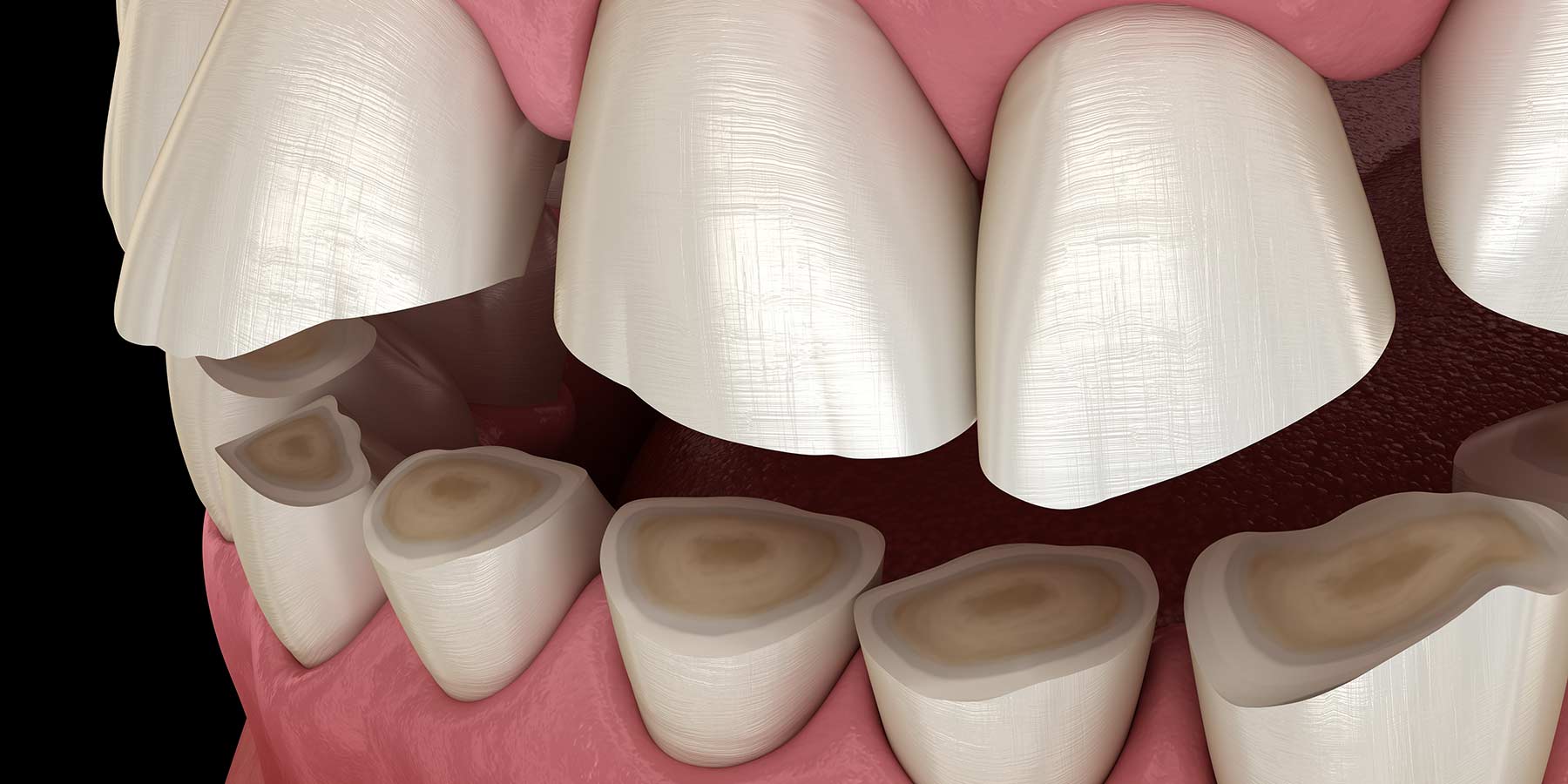
Have you been suffering headaches with no obvious cause? The problem could be in your mouth!
Teeth grinding – also known by the formal term bruxism – is a very common issue. It can happen at any time of day, but teeth grinding it is most likely to occur at night when you are asleep. People don’t always realize they have this habit. Often, they find out when they begin experiencing symptoms.
Teeth Grinding Can Create Serious Health Issues over Time
Bruxism may start as a nervous habit – for example, chewing on fingernails, the end of a pen, or other small objects. Over time, it can develop into a severe issue that happens every night.
Grinding teeth places significant strain on them, which worsens existing issues with tooth spacing and alignment. This can cause permanent damage to the teeth and the jaw. Naturally, it can also cause headaches!
Aside from headaches, some common symptoms of bruxism include:
- Unexplained pain in the teeth, often across several in the same area of the mouth
- Pain, soreness, and stiffness in the jaw early in the morning
- Increased sensitivity in the teeth, including sensitivity to pressure, heat, and cold
- Chipping or cracking of teeth, especially on surfaces where teeth come in contact
People can suffer from bruxism for months and not know it. This can contribute to stress headaches or even touch off migraine episodes if you were already prone to them before.
Once bruxism is treated properly, the headaches associated with it usually disappear.
How to Stop Grinding Teeth – Bruxism Treatment for Adults and Kids
Anyone can develop bruxism, but some risk factors make it more likely:
- Strong emotions, including anxiety, stress, anger, or frustration
- Stimulants, like caffeine, and some depressants, such as alcohol
- Certain chronic diseases, including diabetes, and medications
- Missing or crooked teeth or sleep conditions like sleep apnea
Dental Health Associates
While many people will experience teeth grinding at some point, it is treatable with help from a qualified dentist, like Dental Health Associates. A custom mouth guard or other treatment options can help you protect your teeth, curb bruxism symptoms, and eliminate headaches. Treatments can also address stress and other contributors, which may further alleviate tension headaches.
Dental Health Associates of Madison has been providing care for families for over 50 years and we have 7 convenient Dane County locations to service patients in Madison and the surrounding communities.
If you are suffering with tooth pain, teeth grinding, or headaches, we would be happy to work with you to help you identify if this in fact is bruxism and make sure your smile receives the care it deserves. Request an appointment using our online form or call today to get started! 608.802.8053.




